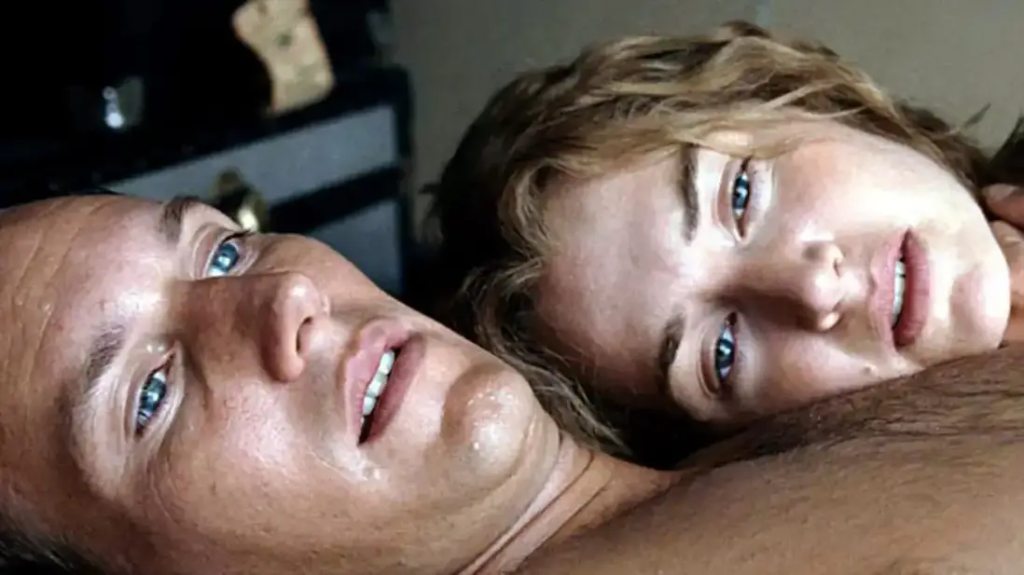Kate Winslet, one of Hollywood’s most admired and accomplished actresses, recently opened up about the physically taxing experience of filming an explicit scene with co-star Patrick Wilson. The encounter, which took place during the production of their 2006 film, has come back into the spotlight as Wilson candidly spoke about its repercussions.
In the critically acclaimed movie, Winslet portrayed an unhappy suburban housewife, locked into an existence of quiet desperation. Her character finds solace and excitement through a clandestine affair with a married neighbor, played by Wilson. The compelling drama, set against the backdrop of suburban Boston, was hailed by critics and secured several Academy Award nominations—including a Best Actress nod for Winslet herself. However, the film never found widespread commercial success.

One of the film’s most memorable and talked-about scenes was an explicit encounter between Winslet and Wilson, known informally as the infamous “laundry room scene.” Filmed years before intimacy coordinators became standard in Hollywood, the scene demanded that both actors perform entirely nude, though discreet modesty garments were employed during shooting. Nevertheless, the raw intensity and authenticity of the performance took a physical toll, particularly on Winslet.
Wilson recently addressed this memorable experience during an appearance on The Hollywood Reporter’s podcast, “It Happened in Hollywood.” With a good-humored tone, he recalled the somewhat awkward aftermath in his personal life, revealing that following the film’s release, he became recognizable for that particular scene. Mothers would often glance curiously at him on playgrounds, experiencing an embarrassing moment of recognition. Wilson playfully described how he eventually started confronting the silent acknowledgments head-on, jokingly asking, “Are you thinking about the laundry room scene right now?”

Despite the humorous recollections, Wilson also acknowledged the uncomfortable realities of filming such intense scenes. He openly admitted the physical toll it had on Winslet, noting that after shooting concluded, she likely experienced multiple bruises. He explained how, at the time, without the guidance of an intimacy coordinator, actors were expected to navigate these emotionally charged sequences on their own, trusting solely in each other’s professionalism and compassion.
Indeed, Winslet herself previously acknowledged the physical challenges she faced while filming. During earlier conversations around the film’s original release, Winslet described waking up after the shoot with significant discomfort, admitting her hips and backside were particularly sore. The discomfort was hardly surprising, given the intensity and commitment both actors brought to their roles.
Winslet vividly described how she and Wilson, alongside director Todd Field, approached the filming of the intimate scenes with caution and care. They rehearsed extensively while fully clothed, limiting the number of crew members present. According to Winslet, the rehearsals helped establish mutual trust, allowing both actors to fully immerse themselves emotionally and physically when the cameras rolled. She warmly recalled the process as being full of laughter and mutual respect, remarking humorously that after a certain point, they genuinely forgot they were naked with someone who was, in reality, still a relative stranger.

Yet Winslet’s reflections in recent years underline a changing attitude toward intimacy in filmmaking. In various interviews, she has passionately advocated for intimacy coordinators, a relatively new industry role now widely regarded as essential for ensuring actors’ comfort, consent, and safety during explicit or emotionally vulnerable scenes.
Speaking to The New York Times Magazine, Winslet candidly revealed her past struggles with asserting her own boundaries. She spoke openly about instances where she felt uncomfortable but hesitated to voice her concerns, fearing professional backlash or being labeled “difficult.” Reflecting on her younger self, Winslet described the internal battle between protecting her dignity and avoiding displeasing directors or producers—individuals who wielded considerable influence over her career trajectory.
She expressed regret that intimacy coordinators hadn’t been available throughout her earlier career, stating she would have greatly appreciated having someone advocating on her behalf during vulnerable filming situations. Winslet detailed how she often wanted to voice concerns about camera angles, nudity, or even the number of crew members present but felt unable to speak up due to fears about future professional repercussions. She emphasized how difficult it was, as a young actress, to advocate for herself in an environment that often demanded compliance.
Today, Winslet remains a powerful advocate for younger actors and actresses, urging industry standards that prioritize performers’ dignity and emotional wellbeing. Her voice has become influential in the broader push to reform Hollywood’s culture, providing younger talent with resources and support she wished she’d had during the early stages of her own career.
Wilson, too, acknowledged the positive changes brought about by the introduction of intimacy coordinators. He humorously described himself as a “dinosaur,” referencing how the industry’s approach to intimate scenes had significantly evolved following movements like #MeToo. He noted with relief that modern actors no longer face the same pressures or discomfort that he and Winslet experienced on set nearly two decades ago.

While both Winslet and Wilson have maintained professional pride in their past work, they openly recognize how critical it is to continue improving conditions on set. Their candid reflections offer a revealing glimpse into the shifting attitudes and ongoing developments within Hollywood’s evolving landscape.
Overall, Winslet’s openness about her experiences—and Wilson’s reflective humor—highlights an important cultural shift toward greater protection and respect for actors in vulnerable positions. Their honesty offers crucial insight, illuminating the changes still needed and reinforcing the importance of supporting performers’ safety, dignity, and comfort above all else.